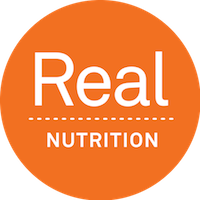
There are tons of protein powders to choose from! How do you pick the right one? Here are a few questions to ask yourself:
“Do I even need a protein powder?”
Often you can get enough protein (and the right kind of protein) just through a well-planned diet. You may want a protein powder if it is difficult to meet your needs through diet alone, you are very busy and need on-the-go nutrition, or you are vegan and need extra protein in your diet. Check out our other blog post on whey, vegan, BCAAs and collagen explained.
“Does it fit within my budget?”
Protein powders can be expensive. Could you be eating food that meets your nutrition needs instead?
For example, Klean Athlete Whey Isolate on Amazon.com is $50 for a pouch that contains 20 servings. That is $2.50 per serving, providing 20 g protein. Three eggs provides about 20 g of protein as well, and only costs about 75 cents. Both the protein powder and the eggs provide complete protein and a good amount of leucine, which is a key amino acid for muscle building and repair.
“Do I like the taste?”
If you don’t like protein powder, you can get your protein other ways. Powdered milk is an easy and cost-effective substitute.
“Is it contaminated?”
Supplements are un-regulated in the United States. They often have contaminants, heavy metals, and fillers in them. There’s no way to know if your protein powder actually is just protein. It could actually be harmful for your body.
Protein powders can be a convenient, on-the-go recovery drink that serves a good purpose. If you opt to use protein powder, look for NSF or Informed Choice certified. This means they are third-party tested for safety and purity.
How much protein do you need?
You might be wondering if you are getting enough protein. Most people do, even vegans and vegetarians. If you are looking to build muscle mass, most people need about 1.6-2.2 grams per kilogram of body weight per day (a pound is 2.2 kg). This protein is best used by your body if spaced out in regular meal intervals with 20-30 grams of protein per meal. It’s even better if it is a complete or high-quality source of protein. Whey is particularly good for muscle building and repair, because it contains an amino acid called leucine that is involved in this muscle tissue activity.
Here’s a handy chart to help guide your protein powder selection.
| Type of powder | Definition | Qualities | Complete protein? |
| Whey hydrolysate | “Pre-digested,” broken down whey isolate particles for quick digestion | Easily digested, high protein source with quality amino acids, contains lactose | Yes |
| Whey isolate | Pure form of whey protein. Filtered from cow’s milk. Usually about 90% protein. | High protein source with quality amino acids, low lactose | Yes |
| Whey concentrate | Less filtered than whey isolate—some carbohydrates still present from natural sugars (lactose) in the milk. Usually about 70-80% protein | Good protein source. Contains lactose. | Yes |
| Casein | Another milk protein | Slowly digested. Best for right before bedtime. Contains lactose. | Yes |
| Pea | From ground peas with the fiber and starch removed | Slowly digested. Good vegan option. | No |
| Soy | From ground soy beans | Good vegan option. | Yes |
| Hemp | From the hemp plant (not marijuana) | Use caution—may contain trace amounts of THC which would cause a positive doping test. Higher in fiber, slowly digested. | Yes |
| Collagen protein | Made from bones, skin, and cartilage of animals. | May help with soft tissue injuries | No |
| Plant protein blend (soy, pea, hemp, etc.) | From ground plant proteins | May have better amino acid profile due to a variety of plants used. Good vegan option. Not superior to whey. | Depends on the blend, but whey is still likely higher in leucine |
| Egg | Made from dehydrated chicken eggs | Easily absorbed and digested. | Yes |
Check out our amazing nutrition resources, including on-demand courses, free downloads, and webinar replays.
- Nutrition for Climbers
- The Ultimate Guide to Useful Sports Supplements
- Ditch Diets and Become an Intuitive Eater
And be sure to follow us on Instagram!




